Lisa Reiffen, a resident of Elkridge, had family who suffered in the Holocaust. She knows that if she had been there then, she would have been persecuted, too.
“I experienced the pain my grandma felt when talking about what happened to her family in the Holocaust,” Reiffen said, “and logically know that had I been there, even if my mother had been Christian, I, too, would have been taken by the Nazis.”
Despite knowing this, Reiffen, the daughter of a Jewish father and a Unitarian Universalist mother, has wrestled with issues of personal identity on account of her interfaith heritage.
“It can feel hard to find one’s place in all of it,” she said. “I am not Jewish because my mother isn’t. I am not Christian because my father isn’t. It feels like being rejected by both sides.”
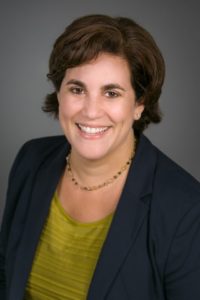
There is clear evidence of a growing generational trend regarding interfaith marriage in America’s Jewish community, said Jodi Bromberg, CEO of 18Doors, which was previously known as InterfaithFamily. “More and more people each generation [have] fallen in love with someone and then chosen to marry someone who’s not Jewish,” Bromberg said.
Indeed, according to a 2013 report released by the Pew Research Center, four out of 10 Jewish respondents who married in the 1980s married a non-Jewish spouse. By the year 2000, however, that statistic had grown to six-in-ten. The same report stated that of the segment it described as “Jews of no religion,” 79% had wed a spouse who was not Jewish.
Before anyone presses the panic button, however, Bromberg noted that interfaith families are increasingly raising their children Jewish. “You will also find a growing trendline, again when you look at that generationally, of parents who are raising their kids Jewishly,” she said, “and subsequently that those children are, in increasing numbers, identifying Jewishly.”
The JT spoke with several members of interfaith families to glean their perspectives on their family makeup, their personal identities and how they see interfaith marriage affecting the Jewish community.
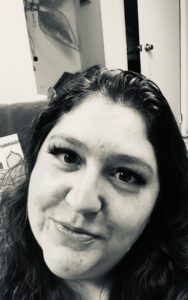
Lisa Reiffen
Reiffen has always considered herself half-Jewish.
Her parents were Robert Reiffen and Cynthia Fisher Reiffen, and she would often listen to her father’s parents, Barney and Constance Reiffen, talk about Jewish history and culture and to her grandfather philosophizing about the Kabbalah and Talmud, even if at the time she didn’t quite understand it all.
Reiffen attended her grandparents’ Reform congregation during High Holidays and funerals, and she remembers attending some bar and bat mitzvahs as a guest. She was also quite close to her maternal grandmother, Betsy Fisher, the wife of a Methodist minister. Though a devout Christian, she was very accepting of others, Reiffen said. Reiffen and Fisher would discuss Christianity, but Reiffen decided at a young age that she didn’t believe in either immaculate conception or the notion that Christ was the son of God.
Growing up, Reiffen never felt the two religions of her household were in conflict, she said. Rather, she was grateful for the chance to understand both cultures and to have double the number of holidays.
Reiffen had always been close to her paternal grandparents, whom she would visit for Passover and Chanukah, she said, and she struggled to understand how she could somehow be different from her grandmother.
“My grandma would talk about the Holocaust and how her mother, Molly Kaplan, was the last person to get out of Poland before the war and came to live with cousins,” Reiffen said.
In Reiffen’s eyes, there is an inherent contradiction to not warmly receiving the children of interfaith families in the aftermath of the Holocaust. “If we are trying to rebuild the 6 million,” she asked, “why are we not embracing our lost sheep coming home and welcoming more to the flock?”
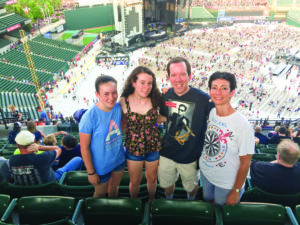
Gabrielle Blackman
A resident of Ellicott City and member of Columbia Jewish Congregation, Dr. Gabrielle Blackman grew up in a Jewish household that reflected a Conservative upbringing. “We kept kosher in the home, but not outside of the home,” she said.
She met her husband, Scott Blackman, when they were attending medical school at Nashville’s Vanderbilt University. They dated for a few years, then got married around the time of her graduation.
Blackman described her family’s reaction to the news of the wedding as being relatively mild. “My parents probably started off hoping that I would marry somebody Jewish, but they got to know him and loved him, so they were supportive,” she said.
Her husband’s family, who hailed from a small town in Georgia that lacked a sizable Jewish community, went out of their way to make her feel welcome, Blackman said. One year, while visiting them for the holidays, her mother-in-law ordered a menorah so they could light Chanukah candles while Blackman was there.
Blackman and her husband had agreed to raise their children Sarah and Joanna, currently 16 and 15, respectively, as “primarily Jewish, but with exposure to both traditions,” she said. In practice, this led to their daughters attending CJC’s Hebrew school, as opposed to a Sunday school, and having bat mitzvahs instead of baptisms, although there would normally be a Christmas tree in the house at year’s end and church services come Easter.
A Christmas tree in her house took some getting used to, Blackman acknowledged, but she eventually made her peace with it, recognizing that it represented an important childhood tradition to her husband. Blackman also felt that growing up with two religions has helped her daughters be more open-minded, and she has welcomed their learning about all religions.
Blackman is aware that some in the Jewish community view interfaith marriage as “diluting the Jewish experience, and are opposed to it,” while others, such as her CJC community, are significantly more open to it.
While she respects that not everyone sees the issue as she does, Blackman feels that the more she learns about other religions, the better a person she becomes.
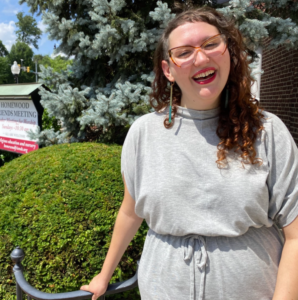
Rabbi Ariana Katz
If anyone insists on thinking that interfaith marriage only exists at the periphery of Jewish life, they should know that even rabbis can be counted as part of interfaith families.
“Our chosen family has always been interfaith,” said Rabbi Ariana Katz, the founding rabbi of Hinenu: The Baltimore Justice Shtiebl, in an email. “My spouse converted to Judaism in 2014, but the rest of their family is not Jewish, and my sibling’s wife is on her way to become a Methodist minister. Our closest friends and chosen family are of many different faith backgrounds, and we take pleasure in sharing our traditions with each other.
“As a rabbi I love doing multifaith weddings,” Katz said. “Any chance to celebrate love between two people is a gift.”
When she hears others who express fear that multifaith marriage is going to damage the Jewish world, she asks how someone could be first told that their marriage to a non-Jewish partner is a bad thing and then be expected to participate in Jewish traditions or institutions.
“The Jewish people have always been in marriages with non-Jews,” Katz said in an email. “Joseph of the Torah married Asenath, an Egyptian (who some commentaries try to claim is Jewish). Moses married Tzipporah, a Midianite. These central leaders of our tradition built family with non-Jewish spouses, and the non-Jewish family members had incredible leadership positions in our people’s history.”
Katz sometimes thinks of the “erev rav — the mixed multitude that fled the narrow place [Egypt] together.” She noted it was a liberation movement for both Jewish people and others who joined them.
“These days I find myself thinking about the non-Jews who were at the base of the mountain,” Katz said, “who escaped the narrow place of Mitzrayim/Egypt with the enslaved B’nei Yisrael. The logic extends to teach us that there is a sanctified place in Jewish community for people who love and make family with Jewish people, that they were also at Revelation, in a sacred covenant together.”




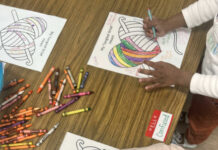


I do not see in interfaith marriages the fact that an increasing number of them are raising their children as Jews. Stats don’t reflect that. What I do see is the majority of these families celebrating Christmas with gifts and Christmas trees. They may light Hanukkah candles but they are really practicing Christians. If your family celebrates Christian Holidays, you are not Jewish. Children cannot be brought up in two religions. The Christian side will always dominate!